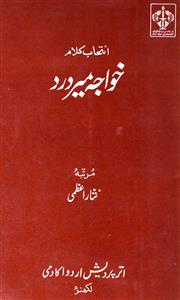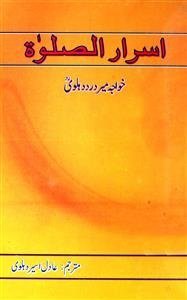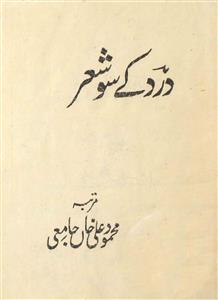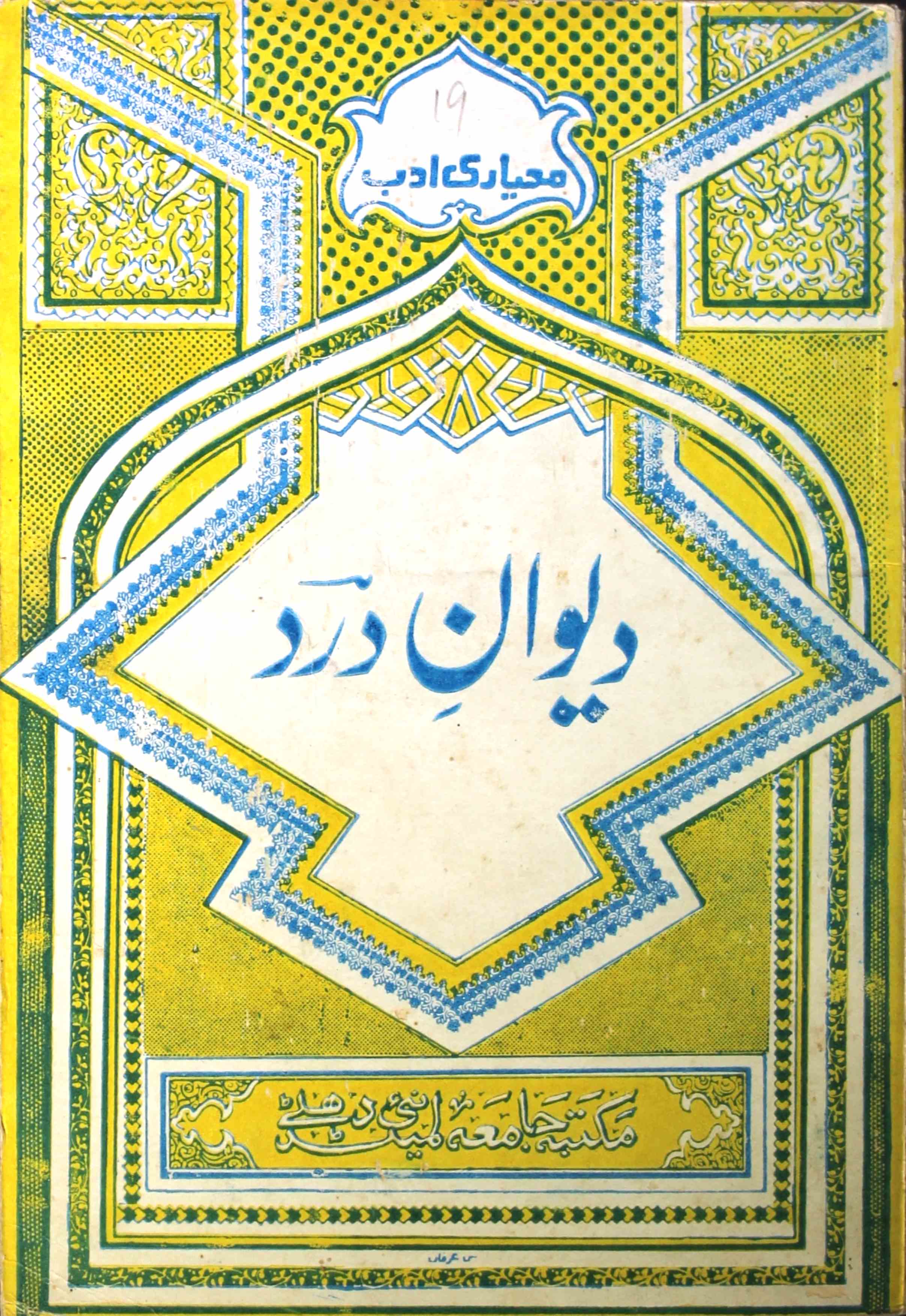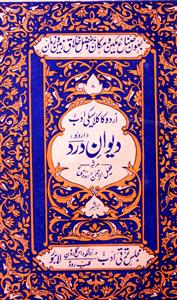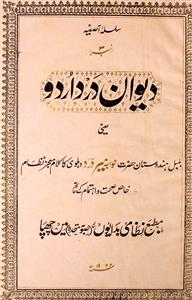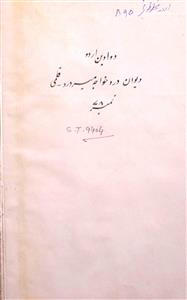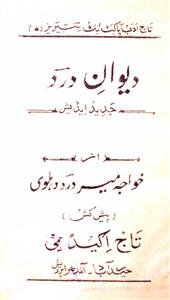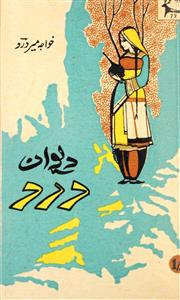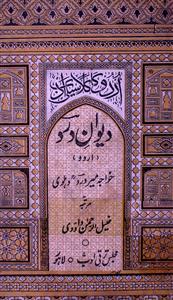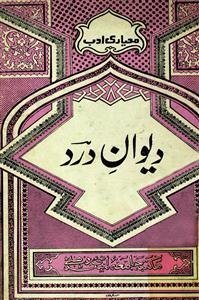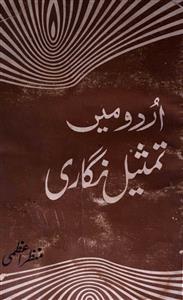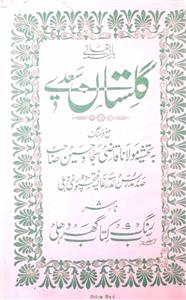 For any query/comment related to this ebook, please contact us at haidar.ali@rekhta.org
For any query/comment related to this ebook, please contact us at haidar.ali@rekhta.org
About The Book
خواجہ میر درد ؔکو اردو میں صوفیانہ شاعری کا امام کہا جاتا ہے۔ دردؔ اور تصوف لازم و ملزوم بن کر رہ گئے ہیں ،میر تقی میرؔ نےانہیں ریختہ کا "زور آور" شاعر کہتے ہوئے انہیں "خوش بہار گلستان ، سخن" قرار دیا۔محمد حسین آزاد نے کہا کہ کہ دردؔ تلواروں کی آبداری اپنے نشتروں میں بھر دیتے ہیں ،مرزا لطف علی صاحب ،"گلشن سخن" کے مطابق دردؔ کا کلام "سراپا درد و اثر "ہے۔میر حسن نے انھیں ، آسمان ، سخن کا خورشیدقرار دیا ،پھر امداد اثرنے کہا کہ معاملات تصوف میں ان سے بڑھ کر اردو میں کوئی شاعر نہیں گزرا اور عبد السلام ندوی نے کہا کہ خواجہ میر دردؔ نے اس زبان (اردو)کو سب سے پہلے صوفیانہ خیالات سےآشنا کیا۔زیر نظر کتاب" انتخاب کلام خواجہ میر در د"نثار اعظمی کی مرتب کردہ کتاب ہے ، کتاب کے شروع میں نثار احمد اعظمی کا لکھا ہوا مفصل مقدمہ ہے ، جس میں خواجہ میر درد کے حالات زندگی اور ان کے دور کے سیاسی ،سماجی پس منظر کو بیان یا گیا ہے ، اس کے بعد درد کا منتخبہ کلام پیش کیا گیا ہے۔
About The Author
Khwaja Mir Dard (1721-1785) was born Syed Khwaja in Delhi. His ancestors had migrated from Bukhara to India but his father who worked as a royal mansabdar relinquished his position to lead the life of a Sufi. Dard received his comprehensive religious education under the supervision of his father. He spent all his life in Delhi and remained a witness to the invasions of Nadir Shah and Ahmed Shah Abdali, as also the Maratha conquest of North-west India. He was, however, keenly interested in music, both vocal and instrumental and he held soirees of music, and mastered the art to perfection. As a Sufi, he was respected equally by the royalty and the nobility. This Sufi poet and theologian of the 18th Century Delhi is an important representative of the Naqshbandi, Mujaddidi lineage of Sufism. He is also known as the leader and theoretician of the Muhammadi path because he fashioned himself in the image of the Muhammad, the last prophet of Islam.
Dard had mastery over the Arabic, Persian, and Urdu languages. His close reading of the holy Qur’an, Traditions of the prophet, jurisprudence, and religious literature, made their mark on his poetry. His expertise in music further defined the tone and tenor of poetic expression. Effortless in his expression and direct in his addresses, he emerged as a renowned mystic poet, both in Persian and in Urdu. He was, by turn, an impassioned advocate for poetry and humble apologist for art. He considered poetry merely as one talent among the many talents of mankind. Poetry, to him, was inspired speech addressed to both the human and the divine. He differentiated between two types of speech, or kalaam, one of them being internal, or nafsi, and the other being verbal, or lafzi. He believed that a poet negotiates between two types of speech: the external, or zaahiri; and the internal, or batini. This reflection on language, speech, and expression underline the modes of Dard’s poetic apprehension and expression. He has to his credit a collection of Urdu ghazals, a Persian Divaan, a prose discourse called Ilm-ul Kitaab, a compilation of mystical sayings called Chahaar Risaala, and a book on the Muhammadi path.
 For any query/comment related to this ebook, please contact us at haidar.ali@rekhta.org
For any query/comment related to this ebook, please contact us at haidar.ali@rekhta.org
Write a Review
Jashn-e-Rekhta 10th Edition | 5-6-7 December Get Tickets Here
